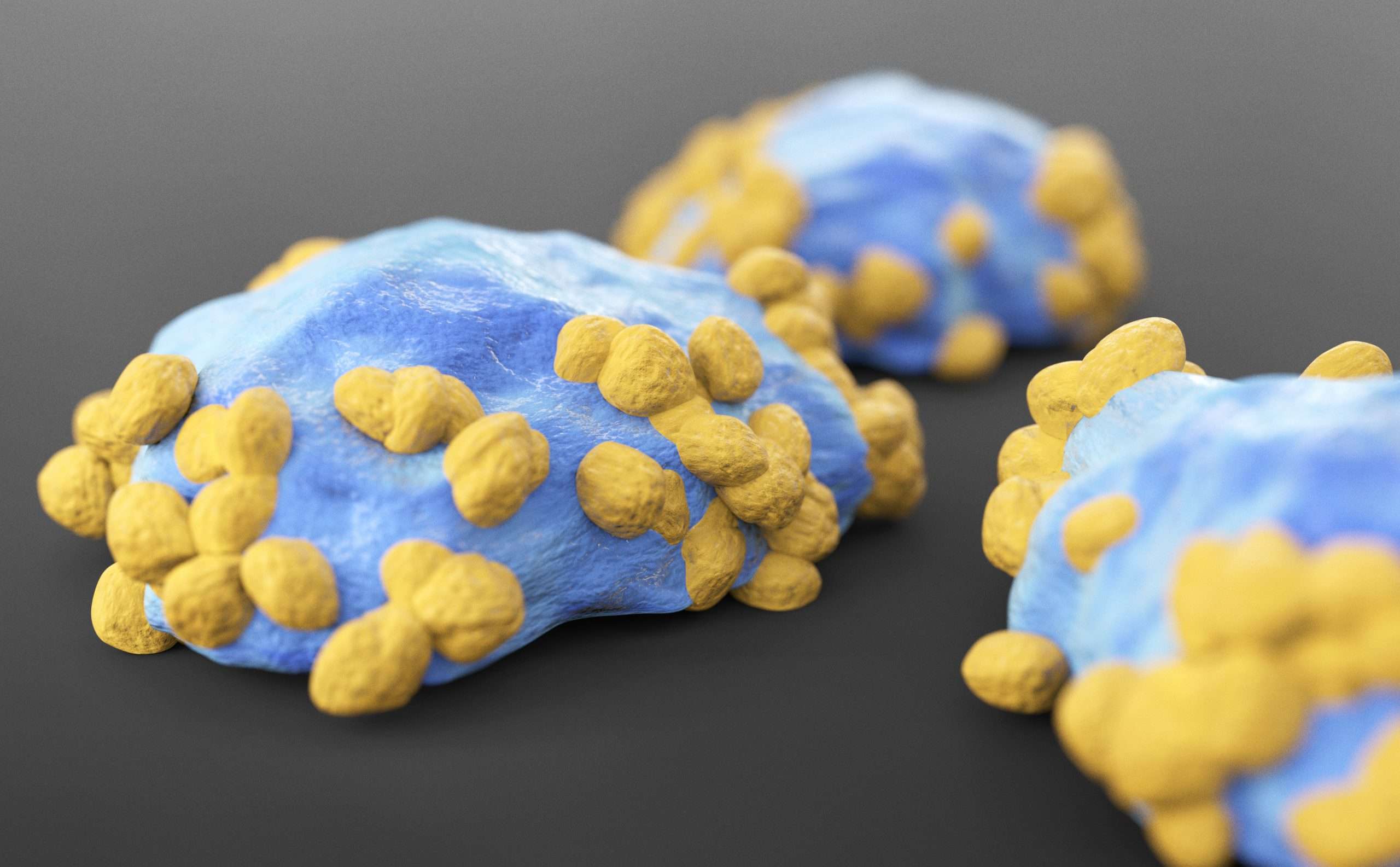FDA approves acalabrutinib with bendamustine and rituximab for previously untreated MCL
On January 16, 2025, the U.S. Food and Drug Administration (FDA) approved acalabrutinib, a Bruton’s tyrosine kinase (BTK) inhibitor, in combination with bendamustine and rituximab (BR) for adults with previously untreated mantle cell lymphoma (MCL) who are ineligible for autologous stem cell transplantation (autoSCT).1
MCL is a rare and aggressive subtype of B-cell non-Hodgkin lymphoma, which remains largely incurable.2 The treatment landscape for MCL has advanced in recent years, with several agents, including CAR T-cells, BTK inhibitors, and bispecific antibodies, being explored in the relapsed/refractory (R/R) setting.3
The approval of acalabrutinib in combination with BR is supported by findings from the Phase III ECHO trial (NCT02972840), a randomized, double-blind, placebo-controlled study involving 598 patients (≥65 years of age and not intended for autoSCT) with previously untreated MCL.1 In this trial, patients were randomized 1:1 to receive acalabrutinib plus BR or placebo plus BR. At a median follow-up of 49.8 months, acalabrutinib plus BR significantly prolonged progression-free survival (PFS) compared with placebo plus BR (hazard ratio 0.73; 95% CI: 0.57-0.94; p=0.016). The median PFS was 66.4 months (95% CI: 55.1, not estimable) with acalabrutinib plus BR and 49.6 months (95% CI: 36.0-64.1) with placebo plus BR.1
We recently spoke with Krish Patel, MD, Sarah Cannon Research Institute, Nashville, TN, who shared insights into the role of BTK inhibitors in frontline MCL, stating that “BTK inhibitors have a tremendous impact in mantle cell and in the front-line space… So, for example, this summer, the ECHO data showed us that combination of acalabrutinib with BR did lead to an improvement in progression-free survival and prolongs that time between start of first treatment and start of next treatment for patients… So really, I think across the spectrum, we’re starting to generate data that helps us define that BTK inhibitors are likely to play a big role.”
Regarding safety, serious adverse reactions occurred in 69% of patients receiving acalabrutinib plus BR, with fatal adverse events in 12%. Common serious adverse reactions included pneumonia, COVID-19, pyrexia, second primary malignancy, rash, febrile neutropenia, atrial fibrillation, sepsis, and anemia.1
The approval of this combination marks a significant advancement in the treatment of this disease in the frontline setting, particularly for patients ineligible for SCT.
References
- U.S. Food and Drug Administration. FDA approves acalabrutinib with bendamustine and rituximab for previously untreated mantle cell lymphoma. Available here. (Last accessed 17/01/2025)
- Pu JJ, Savani M, Huang N, et al. Mantle cell lymphoma management trends and novel agents: where are we going? Ther Adv Hematol. 2022 Feb 26;13:20406207221080743.
- Al-Mansour M. Treatment Landscape of Relapsed/Refractory Mantle Cell Lymphoma: An Updated Review. Clin Lymphoma Myeloma Leuk. 2022 Nov;22(11):e1019-e1031.
Written by Anya Dragojlovic Kerkache
Edited by Sol Yohannes





